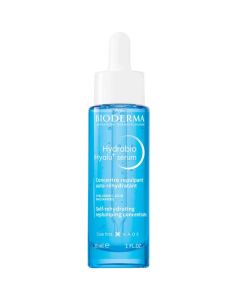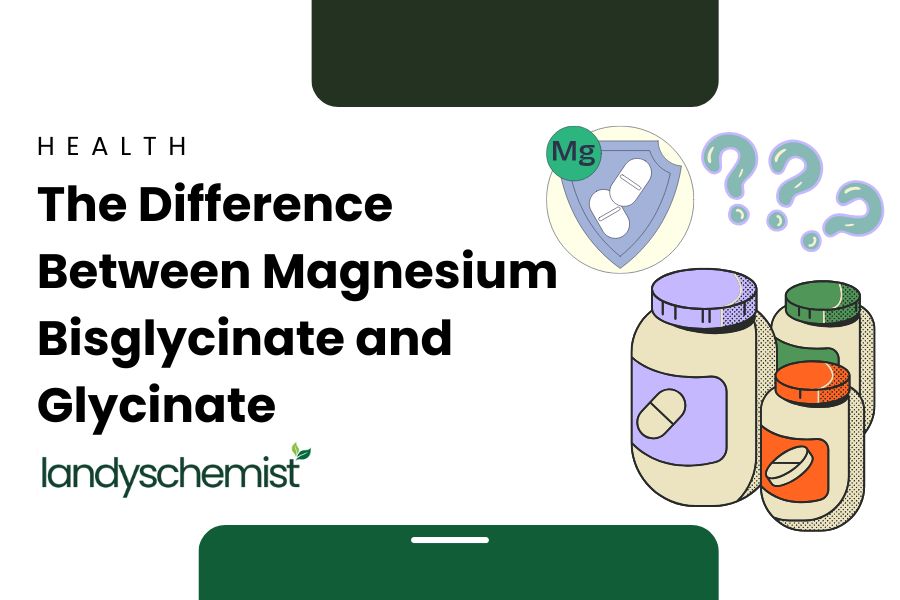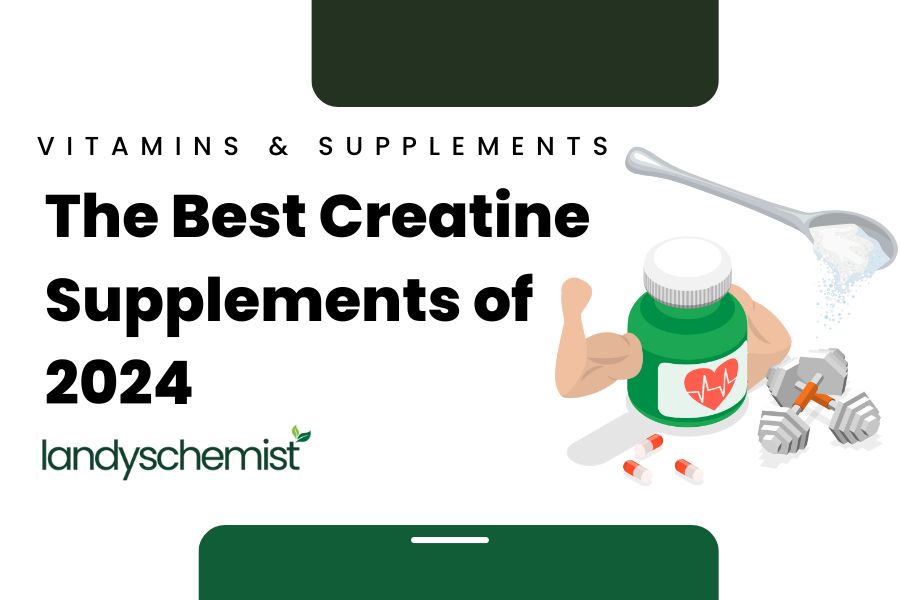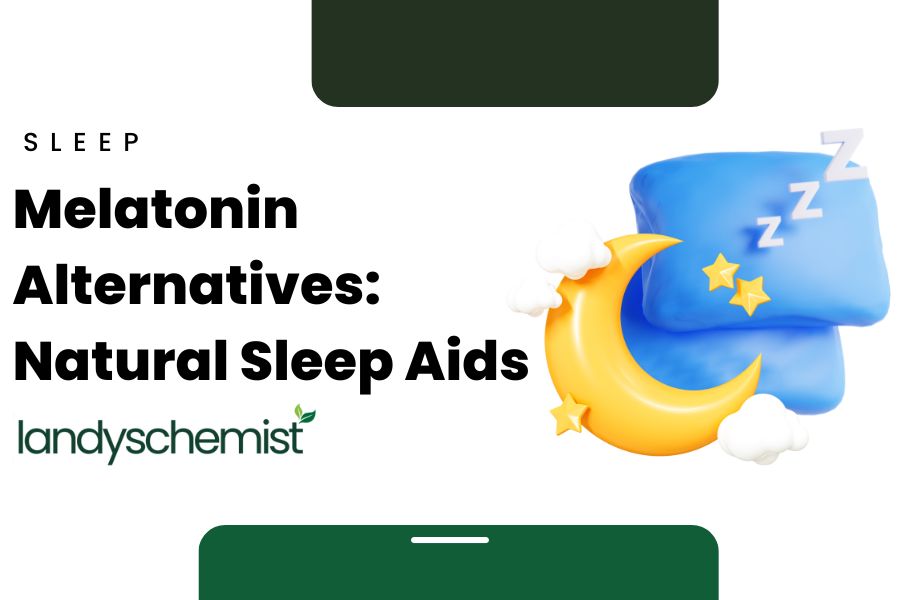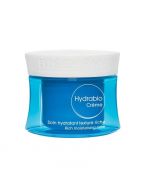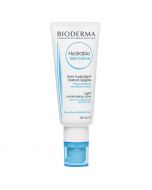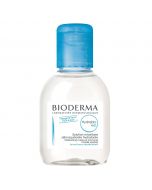
How to prevent oxidative stress on the skin
Within the skincare world we always hear about the importance of protecting our skin from external environmental stressors. One such stressor which can have huge impacts on our skin health is oxidative stress, but what does oxidative stress on the skin mean?
In this blog, we explore what oxidative stress is, its impact on the skin and how skincare products like Bioderma Hydrabio Hyalu+ serum can help prevent this.
What does oxidative stress mean?
Oxidative stress can be described as an imbalance between the production of free radicals (reactive oxygen species) and antioxidants within our body. This essentially means that the levels of antioxidants within the body are low and are unable to detoxify and get rid of these free radicals efficiently enough.
Free radicals are highly reactive molecules containing oxygen which can cause damage to cells, proteins and DNA within our body when there is an excessive amount. Normally, the body is able to neutralise these using antioxidants, however when there is an excess of free radicals or a deficiency in antioxidants, oxidative stress can occur.
What factors can cause oxidative stress?
Oxidative stress can occur in the body from multiple factors including:
- Environmental pollution - pollutants including cigarette smoke and heavy metals as well as air pollution can generate free radicals.
- Radiation
- Smoking - chemicals within tobacco smoke can generate free radicals and induce oxidative stress on cells.
- Poor diet
- Alcohol consumption - excessive alcohol consumption can generate free radicals and reduce the body’s antioxidant defences.
- Infection and sickness
- Sunlight
- Stress - chronic stress can impact the body’s antioxidant defence mechanisms, promoting oxidative stress and chronic inflammation which can increase the production of free radicals.
- Normal metabolic processes - metabolic processes like respiration and the production of energy generate free radicals as byproducts.
What is the effect of oxidative stress on the skin?
Oxidative stress has been shown to play a role in skin ageing and skin diseases, including the pathogenesis of skin cancers. This is because oxidative stress can damage not only our cells, but also our DNA.
Some of the effects oxidative stress can have on the body include:
Oxidative Stress can cause premature ageing:
Oxidative stress can contribute to signs of premature ageing including the formation of wrinkles and fine lines through several mechanisms.
This can include the degradation of collagen and elastin fibres within the skin. Collagen and elastin provide structural support and elasticity to the skin. When these structural components are compromised by free radicals, the skin can lose firmness and elasticity, leading to the formation of sagging skin, fine lines and wrinkles.
Oxidative stress can also promote the formation of advanced glycation end products or AGEs within the skin. These compounds are formed when sugars react with proteins like collagen and elastin. When AGEs accumulate in the skin, it can cause cross-linkage of collagen and elastin fibres which can impair the skin’s elasticity.
Oxidative stress can also trigger inflammatory response, and impair the antioxidant defence of the skin which can contribute to tissue damage and collagen degradation as well as DNA damage which can accelerate the ageing process.
Oxidative Stress can cause photoaging:
Photoageing refers to premature ageing that is caused by prolonged exposure to UV radiation from the sun. Oxidative stress can play a significant role in photoageing as when the UV radiation penetrates into the skin and body, it can lead to the formation of free radicals.
These free radicals can damage cellular components within the skin such as lipids, proteins and DNA which can disrupt the membrane, impair collagen and elastin function and lead to mutations within gene expression promoting photoaging and increasing the risk of skin cancer.
Oxidative Stress and skin cancer:
Oxidative stress can contribute to the development of skin cancer through different mechanisms, especially in conjunction with prolonged exposure to UV radiation from the sun.
When UV rays penetrate the skin, it can interact with DNA molecules to form dimers other compounds which can lead to mutations. UV-induced oxidative stress can also further damage DNA through oxidative modifications which can cause base modifications and DNA strand breaks, increasing the risk of mutations involved in cell growth leading to the initiation of skin cancer. DNA damage can also promote cell proliferation of genetically damaged cells.
Oxidative stress and chronic UV exposure can also impair the DNA’s repair mechanisms. When there is persistent DNA damage, it can increase the likelihood of mutagenesis and carcinogenesis (mutation and cancer formation).
Oxidative Stress can cause inflammation:
Oxidative stress can induce inflammation in the skin by activating signalling pathways which release pro-inflammatory cytokines. These cells amplify the inflammatory cascade causing more inflammation and damage to the skin. Inflammation caused by oxidative stress can cause a cycle of stress and cellular and tissue damage which can lead to chronic inflammatory conditions of the skin.
Oxidative Stress causes dryness, sensitivity and a compromised skin barrier:
Oxidative stress can lead to dryness, increased sensitivity and a compromised skin barrier due to free radicals damaging skin cells. This can disrupt the skin’s ability to retain moisture. Oxidative stress can also break down the lipids and proteins which can lead to a weakened skin barrier. As a result, irritants and allergens can penetrate the skin more easily causing more sensitivity and redness.
Ways to prevent oxidative stress on the skin:
There are many ways to help prevent oxidative stress on the skin, including through skincare:
Consume an antioxidant rich diet
Consuming a diet high in antioxidants can help defend against oxidative stress. Foods high in nutrients like Vitamins A, C and E, Zinc and phenols are high in antioxidants and can be found in foods like avocado, berries, leafy greens, citrus fruits, nuts and more.
Use sun protection
Using a broad spectrum SPF can help to protect the skin from sun damage and UV-induced oxidative stress.
Hydrating skincare
Maintaining skin hydration is essential to protect and maintain skin barrier function as well as protect against environmental stressors. Using hydrating serums like the Bioderma Hydrabio Hyalu+ serum is a great way to strengthen the skin barrier, replenish moisture levels and prevent dryness which can exacerbate oxidative stress.
Regular exercise and staying active
Studies have shown that regularly exercising can help to prevent oxidative stress within the body and boost the body’s antioxidants defences, but it is important not to over exercise as this can actually induce oxidative stress!
Stress Management
Chronic stress can contribute to oxidative stress in the body and so practising stress-reduction techniques like deep breathing, yoga, mindfulness and getting good rest can help to mitigate oxidative damage.
The best skincare to prevent oxidative stress on the skin
Skincare plays an important role in protecting the skin from oxidative stress by helping to protect the skin barrier from environmental aggressors like UV radiation. Incorporating key ingredients like low and high molecular weight hyaluronic acid and carnosine can create anti-oxidant rich and hydrating formulas which can help to neutralise free radicals, replenish moisture and support the skin’s natural defence mechanisms.
Bioderma Hydrabio Hyalu+ Serum
The Bioderma Hydrabio Hyalu+ Serum is a serum that can benefit all skin types and helps to protect the skin from free radical damage with key ingredients like Carnosine and Niacinamide. This serum helps to promote long-lasting hydration as well as stimulate collagen and hyaluronic acid production for clinically proven anti-ageing results and radiant, glowing skin!
How does Bioderma Hydrabio Hyalu+ Serum prevent oxidative stress on the skin?
The Bioderma Hydrabio Hyalu+ Serum contains 3 key ingredients to help protect the skin from oxidative stress, protect and maintain skin barrier function and maintain moisture: Low and High molecular weight hyaluronic acid, Niacinamide (Vitamin B3) and Carnosine.
How do these key ingredients help prevent oxidative stress on the skin?
Hyaluronic Acid helps to penetrate the skin epidermis to hydrate the skin and promote long-lasting moisture retention and hydration.
Niacinamide or vitamin B3 works to maintain the skin barrier function and regulate sebum production. Its anti-inflammatory properties also help to reduce redness and sensitivity.
The main ingredient to protect the skin from free radical damage is Carnosine which is a dipeptide. This ingredient helps to neutralise free radicals, reducing oxidative stress on the skin and preventing glycation. This, along with its anti-inflammatory and antioxidant properties help to contribute to soothed skin whilst ensuring that skin elasticity is maintained and protected against damage.
By Saarah Mengrani, MSc Biotechnology

